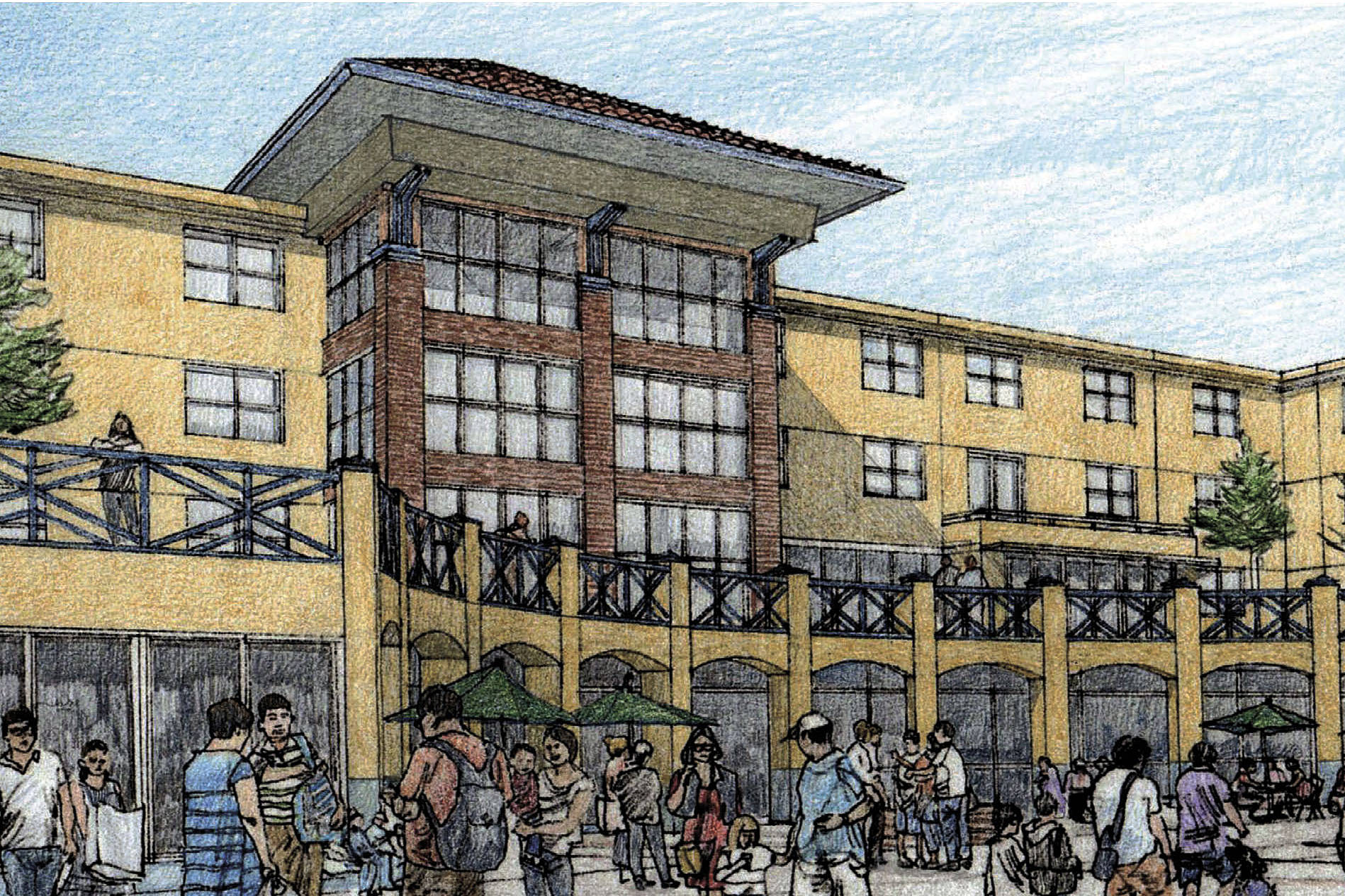Over the past few years, Teresita Benito has struggled to live the life she desires. Living on a fixed income amid Seattle’s rising rent, the 67 year old was forced to give up her home five years ago when she could no longer make the mortgage payments following her husband’s death. Then she had to move out of her own apartment two years ago when she was unable to shoulder the costs after her retirement from U.S. Bank. Benito now lives with her daughter’s family in a Lower Queen Anne condominium, but she remains hopeful that she’ll be able to return to a place of her own soon.
“For an old person, independence is really important,” Benito said over the phone Monday. “You don’t want to feel like a burden for your family.”
Originally from the Philippines, Benito became involved with the Filipino Community of Seattle two years ago, where she helped fundraise for an affordable housing project that would allow seniors like her to live independently on parcels of land adjacent to the community center.
On Monday, Benito’s efforts culminated with the city’s announcement that $10.9 million will be invested into the creation of the Filipino Community Village, a four story building with 94 affordable housing units designed for low-income seniors. The project is part of the city’s plan to invest $101 million into building and preserving 1450 affordable homes throughout the city. The Office of Housing money will go toward the construction of 896 apartments in nine new buildings, the preservation of 535 units in four buildings, and the creation of two affordable homeownership sites that will generate 26 homes. It also supports a transit-oriented development at Roosevelt Station.
The department’s funding doubled this year after the allocation of $29 million in bonds, a 2016 voter-approved housing levy, and money generated from incentive zoning projects in South Lake Union and downtown, said Robin Koskey, the strategic advisor for the Office of Housing.
“It’s wonderful to have such a great amount of affordable housing awards this year, but we still know there’s much work to be done,” Koskey told Seattle Weekly.
The Filipino Community Village project started nearly a decade ago and has involved the purchase of seven parcels of land near the community center, said Filipino Community of Seattle Executive Director Sheila Burrus. Although the center already provided free lunch and classes to low-income seniors, a 2012 community survey also revealed the overwhelming need for senior housing.
“Our elders are aging and they don’t want to be far from the community center,” Burrus said. The center already offers the seniors culturally appropriate food, as well as health examinations from volunteer doctors and nurses from within the Filipino community. Yet rising rent has forced many seniors to move farther away from these services to Kent, Bryn Mawr-Skyway, and Renton, she added.
So the center’s leaders consulted with El Centro de la Raza, a Latino Community hub that created affordable rental units of their own, to learn how to develop a community-led housing project. Like El Centro De La Raza, the center will also be working with Beacon Development Group. Additional funding for the Filipino Community Village project will come from the Washington State Housing Trust Fund and federal tax credits from the Washington State Housing Finance Commission.
“We’re hoping to … mitigate some of our seniors leaving the city,” Burrus said, adding that many Filipino elders are “disproportionately targeted” by rising rent because of their low incomes.
Mayor Jenny Durkan echoed the sentiment in a Monday press release. “Too many long-time residents are getting locked out and pushed out of Seattle. We need to urgently increase the amount of affordable housing to stop the huge displacement of people and provide permanent housing for people experiencing homelessness,” she said.
The Filipino Community Village project was originally designed to house low-income seniors and survivors of domestic violence and human trafficking, but the center narrowed their focus when funding for their domestic violence unit was cut last year. Two houses on the properties that were once used as short-term housing for survivors will be torn down to make way for senior housing. Now the center refers victims of domestic violence and human trafficking to other service providers.
Burrus said that the project will complement the culturally-sensitive services that the center already provides the Filipino community, although housing will be open to the larger public.
Other marginalized communities with unique needs will also be served by the additional funding in this year’s budget. For instance, a new project spearheaded by nonprofit Pioneer Human Services will create 90 affordable housing units in Belltown for the formerly incarcerated.
“Men and women seeking affordable housing who have been formerly incarcerated have an extra barrier to housing,” said Bob Thompson, the director of real estate planning and development at Pioneer Human Services. The new development will accept people with criminal records, unlike many landlords who are reluctant to house people who don’t pass a background check, he noted. It will also cater to the population’s needs by providing job-readiness training, counseling, and case management. Thompson believes that the investment will help strengthen community safety.
“When individuals receive housing and other basic needs they can more easily reintegrate successfully back into our communities,” Thompson noted. “However, when they have limited options and become desperate, often their behavior can affect the safety in communities.”
For the formerly incarerated and seniors like Benito, the funding signifies the possibility of starting life anew. Benito plans on applying for a unit when the applications open on a first-come, first-serve basis shortly after groundbreaking in early 2019. Units will be rented out on a sliding scale for seniors who earn between 30 to 60 percent of the median income.
“Now we can see some light for us … seniors who need some housing,” she concluded.
mhellmann@seattleweekly.com








